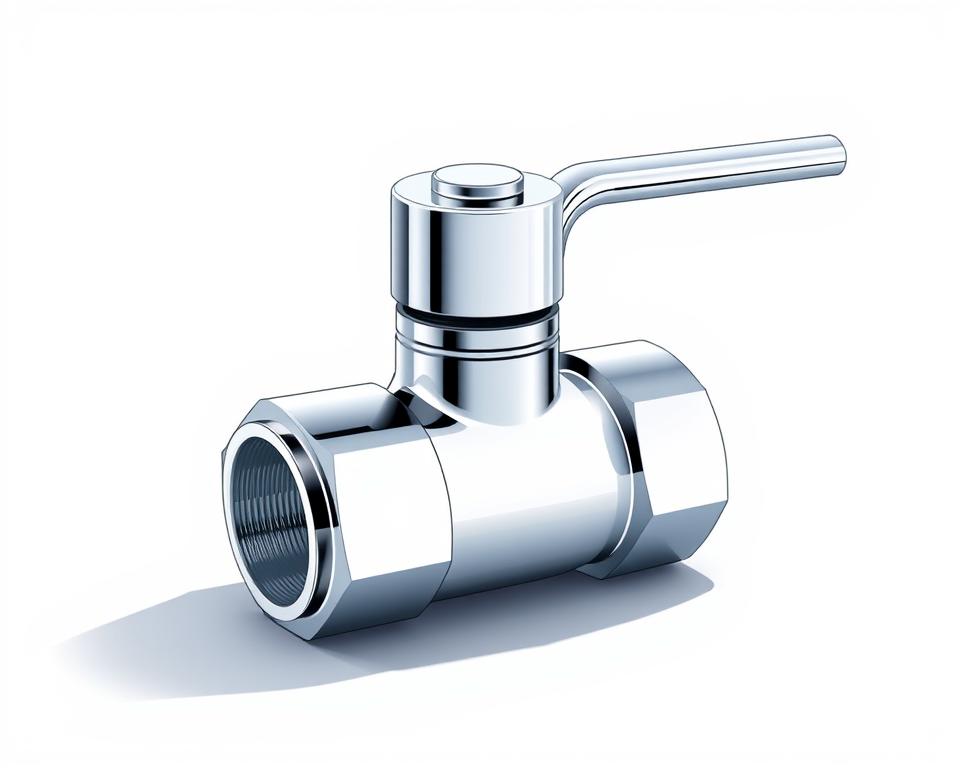Levamisole: Purposes & Reactions.
Levamisole HCl, first developed for animal purposes, has now become crucial in human treatment. It is recognized by its CAS number 16595-80-5 and EINECS number 240-654-6. This compound is a white crystalline powder, celebrated for its powerful anti-worm effects. It is primarily manufactured in China, complying to stringent USP/BP/EP standards.
Levamisole HCl is notable for its potency against Ascaris lumbricoides and hookworms. It is essential for both medical and veterinary health. However, comprehending the possible Cas 240-654-6 adverse reactions and its appropriate usage is crucial for risk-free therapy. This article investigates the significant uses, mechanisms, and negative effects of Levamisole HCl. It aims to offer a thorough resource for doctors and individuals.
Defining Levamisole HCl?
Levamisole Hydrochloride, often known as 99% Levamisole HCl, is a key medical substance. Its singular molecular makeup, C11H12N2S·HCl, positions it as a prominent component in pharmaceutical intermediates. Identified by its CAS number, CAS 240-654-6, this substance is distinguished by its remarkable cleanliness level of 99%, providing both potency and safety.
Originating from China, Levamisole Hydrochloride is celebrated for its compliance to USP/BP/EP pharmacopeia standards. These rigorous quality tests verify its characteristics, including identification, dissolution, cleanliness, and assay results. Such parameters guarantee its effectiveness as an anti-worm agent, essential for eradicating parasitic worms in both humans and animals.
Below is a detailed overview of Levamisole HCl’s key characteristics:
| Feature | Details |
|---|---|
| Molecular Name | Levamisole HCl |
| Chemical Structure | C11H12N2S·HCl |
| Purity | 99% Levamisole HCl |
| CAS ID | CAS 240-654-6 |
| Origin | China |
| Use | Pharmaceutical Intermediates |
This strict quality control guarantees that Levamisole Hydrochloride continues to be a trusted choice within the domain of medical intermediates.
Mechanism of Function of Levamisole
Levamisole Hydrochloride shows a sophisticated method that integrates immunomodulation and straightforward anti-parasitic activity. This combined operation makes it irreplaceable in both medical and veterinary fields.
Immune System Effects
As an immune system enhancer, Levamisole boosts the immune system’s function. It stimulates various immune cells, helping in the management of autoimmune diseases like rheumatoid arthritis. The method of function here entails improving T-cell function. This leads to better immune surveillance and the eradication of pathogens.
Anthelmintic Properties
Levamisole is renowned for its powerful anthelmintic effects. Functioning as a dewormer, it disturbs the neuromuscular system of parasitic worms. This leads to paralysis and death, efficiently removing the infestation. As an anthelmintic agent, Levamisole undergoes stringent quality control. This ensures its specificity and effectiveness in eliminating parasitic worms.
Primary Applications of Levamisole Hydrochloride
Levamisole Hydrochloride has become as a versatile substance in both medical and veterinary areas. Its applications include from deworming to immune-modulating therapies, affecting a broad spectrum of medical and animal cases.
Medical Applications
In human medicine, Levamisole Hydrochloride is a potent parasitic remover, combating parasitic worm infections. It is authorized for curing ascariasis and hookworm infections. Moreover, it is used in immunotherapy, boosting the immune function in various diseases.
Veterinary Applications
For pets, Levamisole is vital in handling parasitic infections. It secures the health and productivity of livestock and pets by eradicating harmful parasites. This medication is essential for cattle, sheep, goats, and household pets, having a key role in their overall health and wellness.
Quantity and Application of Levamisole HCl
Levamisole is a multifaceted drug used in both medical and animal care. It’s important to understand the correct Levamisole HCl dose and application methods for effective care and security.
Suggested Doses
The recommended dose for administering Levamisole varies between 1.5 to 2.5 mg/kg of body weight. This confirms the drug is potent and risk-free, lowering the risk of side effects. Quantity differs with patient age, weight, and the issue being treated.
Forms of Administration
Levamisole HCl use can be carried out through various methods, depending on the patient or animal’s needs. Typical forms are:
- Oral tablets
- Injectable solutions
- Topical applications (less common)
Administration Advice
When using Levamisole, it’s essential to follow the dosage guidelines. Here are some administration recommendations:
- Determine and give the exact Levamisole dosage as a doctor prescribes.
- Understand the distinct needs of species for correct Levamisole use in animal settings.
- Speak with a veterinarian or healthcare provider to change dosages based on patient responses and side effects.
Below is a short table outlining the recommended dosages for various species:
| Type | Quantity | Form |
|---|---|---|
| Individuals | 2.5 mg/kg | By mouth |
| Cows | 1.5-2.5 mg/kg | Injectable |
| Lambs | 1.5-2.0 mg/kg | Oral |
Correct Levamisole use guarantees treatment effectiveness and minimizes negative effects. This results in better outcomes for people and pets alike.
Potential Side Effects of Levamisole
Levamisole HCl is widely recognized for its efficacy. However, it’s vital to acknowledge possible negative effects. This confirms they are promptly recognized and managed.
Common Adverse Reactions
Digestive issues are among the most common Local anesthetic negative effects. These consist of nausea, vomiting, and abdominal pain. Some individuals may also have headaches. These symptoms, although typically mild, can be very bothersome. They could lead to halting the care or modifying the dose.
Critical Side Effects
Levamisole overdose can result in critical health issues. A major concern is agranulocytosis, which significantly lowers white blood cell counts. This makes people very prone to infections. Other severe side effects include vasculitis, which is inflammation of the blood vessels, and severe skin reactions such as rashes.
Healthcare professionals recommend frequent monitoring for any side effects to Levamisole HCl. Regular check-ups and blood tests are advised to minimize severe complications. This careful approach is crucial to balance the care’s benefits against its risks.
Safety Measures and Alerts
When considering the use of Levamisole HCl, it is important to adhere to particular precautions to guarantee health and safety. Individuals should refrain from Levamisole if they have a known hypersensitivity to the compound or preexisting ailments such as liver or kidney disease. These are important Levamisole cautions to minimize any negative effects.
Expectant or breastfeeding women, as well as those with compromised immune systems, should consult a medical expert before initiating therapy with Levamisole. This action is important for maintaining high levels of Levamisole HCl safety. Additionally, regular blood tests could be necessary to observe the medication’s effects on the body, which highlights the importance of being vigilant.
It is just as important to comply with stringent storage and handling guidelines to maintain the compound’s integrity and efficacy. Appropriate storage conditions include keeping Levamisole in a chilly, arid place away from direct sunlight. These Levamisole advisories are not to be taken lightly, as inappropriate handling can result in diminished efficacy and possible risks.
| Issue | Step |
|---|---|
| Allergy | Refrain from using |
| Liver or kidney disease | Talk to doctor |
| Expectant or nursing | Speak with medical expert |
| Weakened immunity | Consult healthcare provider |
| Frequent blood checks | Check compound effects |
| Storing | Cool, dry place away from sunlight |
Levamisole Hydrochloride in Livestock Care
Levamisole HCl is vital in animal medicine, combating parasitic diseases in livestock and pets. It improves animal health and productivity when used correctly.
Usage in Livestock
In farming, Levamisole HCl is crucial to fighting parasitic infections in animals. As a potent Levamisole dewormer, it enhances health and productivity in cattle, sheep, and pigs. The dose must be precisely measured, taking into account the animal’s species and weight for optimal results and protection.
Pet Protection
Guaranteeing pets’ safety with Levamisole veterinary use is essential. Animal doctors highlight the importance of accurate evaluation and treatment plans to avoid side effects. Detailed assessments help decide if Levamisole for pets is right for each pet, securing their health and well-being.
Storing and Handling of Levamisole HCl
Preserving Levamisole HCl properly is essential for its effectiveness and protection. Levamisole Hydrochloride should be stored in closed containers. It should be placed in a cool, dry spot, away from light, moisture, and pests. This confirms the compound remains strong and safe for longer.
Here are some instructions for managing Levamisole HCl to maintain its pharmaceutical quality:
| Storing Conditions | Recommendation |
|---|---|
| Storage Box | Airtight, sealed |
| Climate | Ambient temperature (20-25°C) |
| Surroundings | Cool, dry, and away from light |
| Moisture Control | Moisture absorbers suggested |
| Bug Avoidance | Keep in insect-free location |
| Shelf Life | Stick to shelf life |
By adhering to these tips, Levamisole HCl stays within the quality range required by pharmaceutical standards. Appropriate storage and keeping of Levamisole HCl maintains its effectiveness for future use.
Contrasts with Other Treatments
When differentiating Levamisole HCl with other therapies, it’s essential to consider their distinct clinical profiles and uses.
Comparing Levamisole and Tetracaine
Levamisole and Tetracaine have vastly different medical roles. Tetracaine is a strong local anesthetic, used to numb during medical procedures. It acts by blocking nerve signals, making it suitable for surgeries and minor medical interventions.
Levamisole HCl, on the other hand, is an immunomodulator and parasitic remover. Its capacity to modulate the immune system and remove parasitic infections separates it from Tetracaine. Unlike Tetracaine, Levamisole HCl is not used for anesthesia. Instead, it is crucial in managing autoimmune diseases and parasitic infections.
Comparing Levamisole and Procaine
Levamisole HCl and Procaine also have different clinical uses. Procaine, like Cas 59-46-1, is a local anesthetic used to induce temporary numbness in certain areas for procedures such as dental work and minor surgeries. It accomplishes this by blocking sodium channels, inhibiting pain signals from reaching the brain.
Levamisole, however, is directed at boosting the body’s immune reaction and addressing parasitic worms. This is a big difference from Procaine’s numbing effect. Levamisole HCl does not act as a local anesthetic but enhances the body’s defense mechanisms and addresses infections from parasitic organisms.
Below is a detailed contrast of Levamisole HCl with Tetracaine and Procaine:
| Criteria | Levamisole | Tetracaine | Procaine |
|---|---|---|---|
| Key Purpose | Immune enhancer and anti-worm agent | Pain reliever | Numbing agent |
| Mechanism of Action | Boosts Immune System, Eliminates Parasitic Infections | Blocks Nerve Signals | Inhibits sodium channels |
| Application | Manages immune disorders and parasitic infestations | Employed in operations and minor interventions | Used in Dental Procedures, Minor Surgeries |
Understanding the variations between Levamisole HCl, Tetracaine, and Procaine aids medical professionals in picking the most appropriate therapy for their patients. This ensures less risky and more effective medical outcomes.
Conclusion: Pros and Drawbacks of Levamisole Hydrochloride
Levamisole HCl is notable as a essential drug in human and veterinary medicine. It’s celebrated for its powerful anthelmintic properties, successfully addressing parasitic infections. Additionally, it enhances the immune system in certain clinical settings, making it a preferred choice for doctors and vets.
However, Levamisole HCl is not without its downsides. The range of Levamisole hazards contains adverse reactions that differ from mild to severe. While minor issues like nausea and dizziness are tolerable, critical blood disorders demand close attention. Thus, a thorough Levamisole review must consider both its benefits and its risks.
For those considering Levamisole Hydrochloride, a comprehensive grasp is crucial. Health experts and pet owners must thoroughly consider the Levamisole HCl advantages against the potential risks. Guaranteeing responsible administration, correct dosing, and careful observation is crucial. This measured strategy is essential for risk-free and effectively administering Levamisole.



